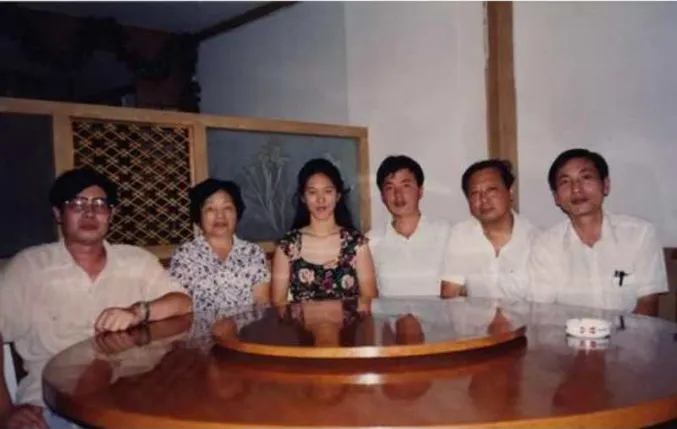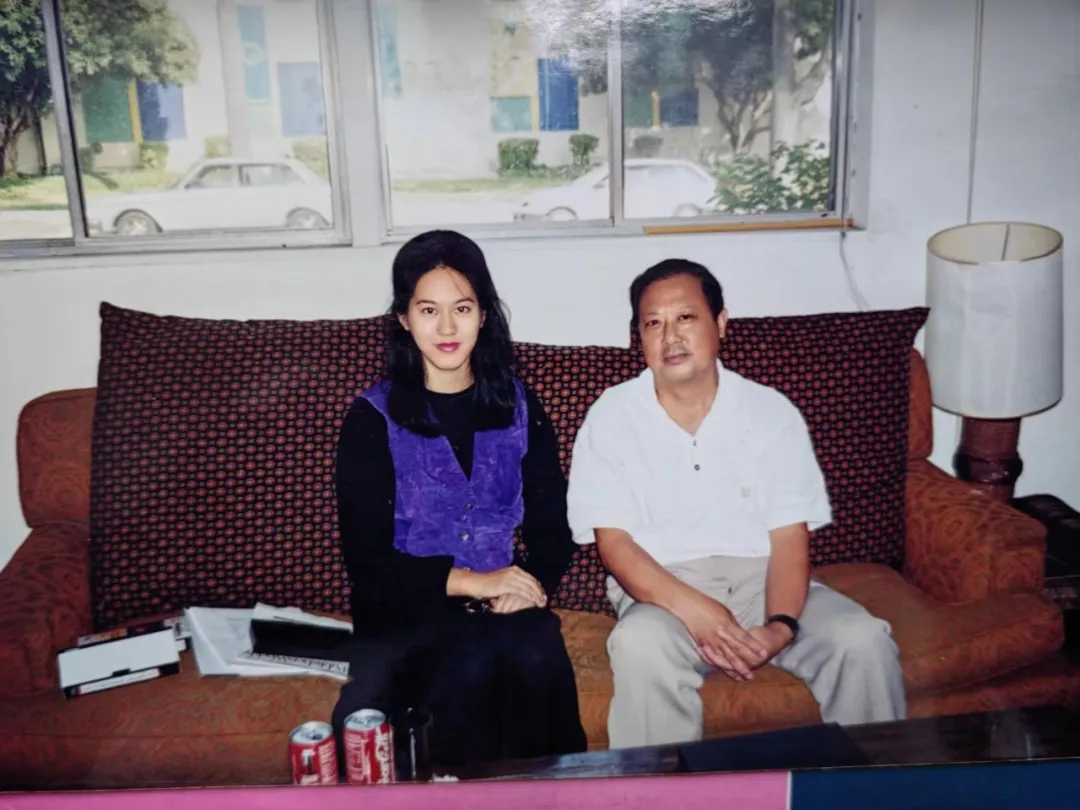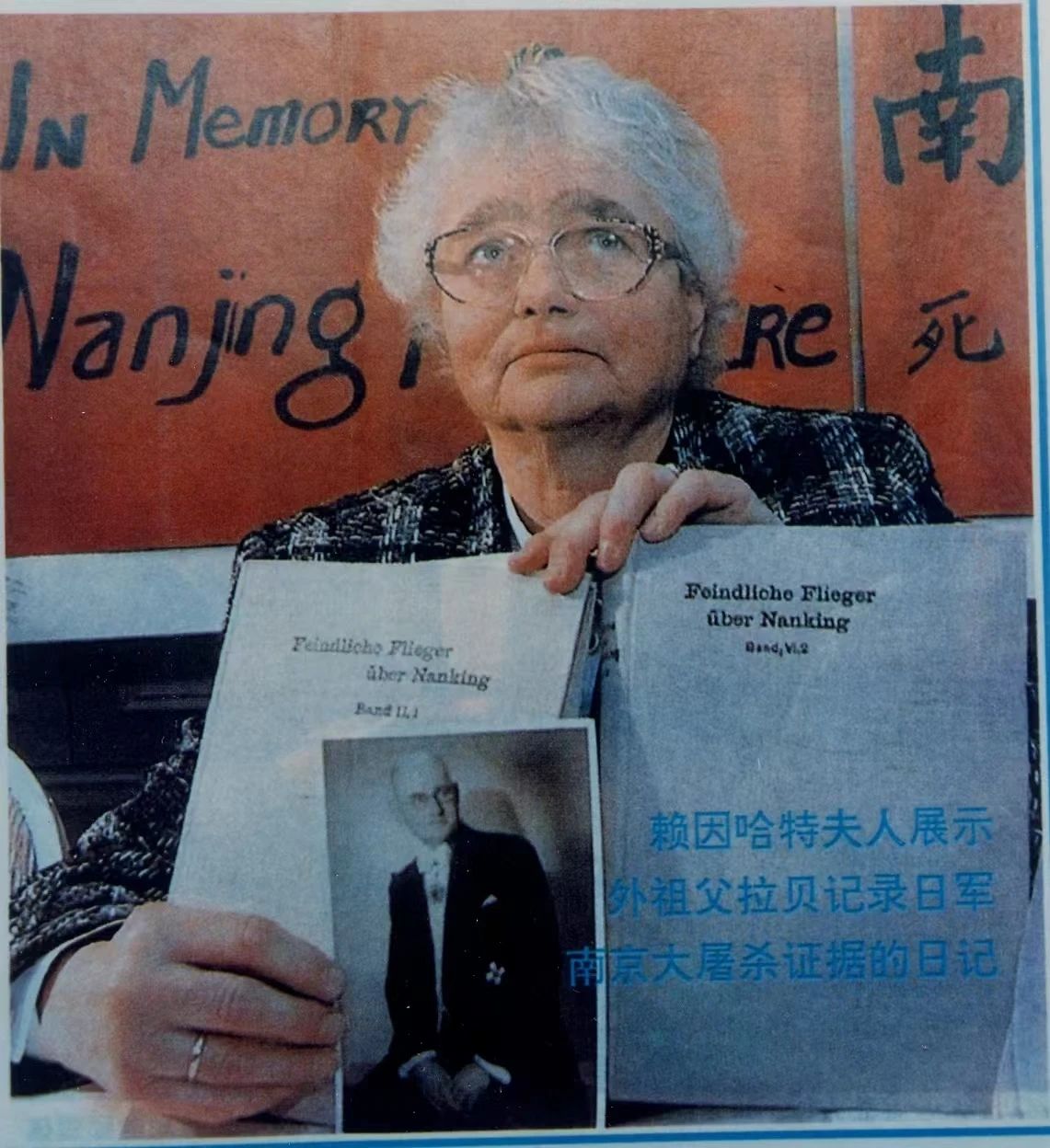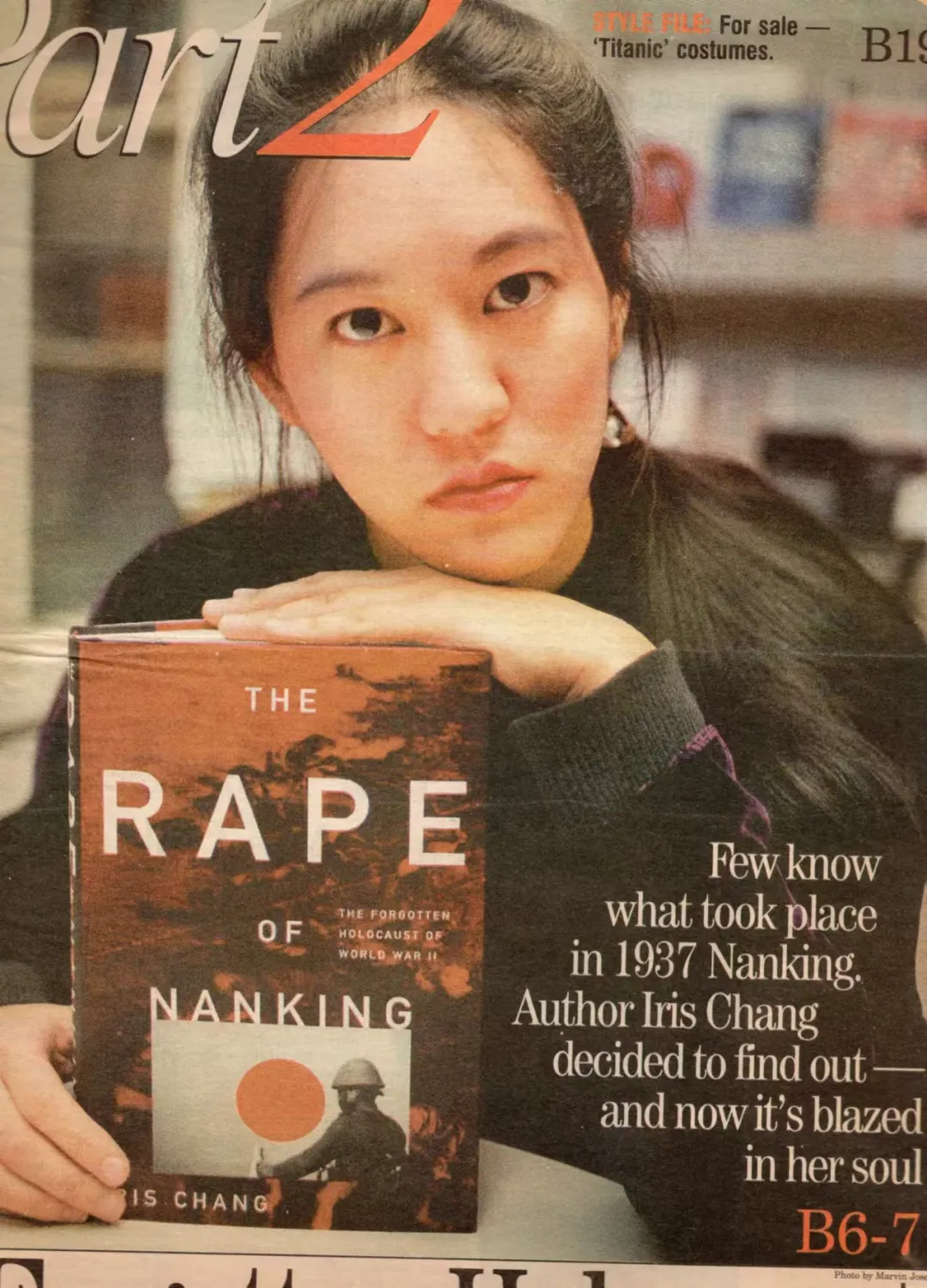The 20th Anniversary of the Death of Zhang Chunru| Her Short Life was Devoted to Seeking Justice for the Innocent Victims
November 9 of this year marks the 20th anniversary of the death of Zhang Chunru, a Chinese-American writer. Recently, Sun Zhaiwei, former deputy director of the Institute of History at the Jiangsu Provincial Academy of Social Sciences and a researcher at the Institute of National Heritage & International Peace, published an article titled Zhang Chunru I Knew in the fourth issue of Jiangsu Literature and History Research in 2024. The article recalls how Zhang Chunru visited survivors in Nanjing, reviewed historical materials on the Nanjing Massacre, tracked down The Diaries of John Rabe in the United States, and wrote and published The Rape of Nanking: The Forgotten Holocaust of World War II, allowing the Western society to understand the historical truth of the Nanjing Massacre.
On the eve of leaving Nanjing, she insisted on doing interviews despite having a fever
Sun Zhaiwei has the habit of keeping a diary. He documented his interactions with Zhang Chunru in his diary. This year, he sorted out the contents recorded in the diary into a memoir titled Zhang Chunru in My Eyes. In the article, he wrote, "When Zhang Chunru came to Nanjing to investigate the atrocities committed by the Japanese army during the Nanjing Massacre, she had no acquaintances in the city. I was the first person entrusted to receive her on the land of Nanjing."
The person who entrusted him was Professor Wu Tianwei from Southern Illinois University in the United States, an internationally renowned expert on the Nanjing Massacre. In a letter to Sun Zhaiwei dated June 1995, Wu wrote, "Recently, a Chinese-American scholar named Zhang Chunru will soon come to Nanjing to investigate the atrocities of the Nanjing Massacre. She plans to write a book in English to inform the truth of the Nanjing Massacre to the Western public." Sun Zhaiwei invited Wang Weixing from the Institute of History of Jiangsu Provincial Academy of Social Sciences and Yang Xiaming from the Party School of C.P.C. Jiangsu Committee to assist Zhang Chunru in her investigating and collecting materials. Wang Weixing was familiar with the historical facts of the Nanjing Massacre and proficient in Japanese-language materials, while Yang Xiaming was fluent in English. Meanwhile, he also invited Duan Yueping, then Deputy Director of the Memorial Hall, to accompany Zhang Chunru to visit survivors and pay visits to the monuments and burial site of the Nanjing Massacre Victims. On July 23, 1995, Sun Zhaiwei, Wang Weixing, and Yang Xiaming met Zhang Chunru at the Xiyuan Hotel on Shanghai Road in Nanjing. Zhang Chunru shared that her grandfather was a teacher in Nanjing in 1937 and had witnessed the wanton and indiscriminate bombing by Japanese planes. Later, before the fall of Nanjing City, he fled to Yixing. A year before her trip to Nanjing, in a small town in California, the United States, she visited an exhibition about the Nanjing Massacre. Those bloody materials awakened her memories of her family’s suffering in Nanjing. She made up her mind to take recording the tragic facts of the Nanjing Massacre as her historical responsibility. On July 25 of that year, Sun Zhaiwei, Yang Xiaming, and Duan Yueping accompanied Zhang Chunru to investigate the sites of the Nanjing Massacre. They chartered a taxi and rushed to visit the Yijiang Gate, Zhongshan Wharf, Coal Port, Caoxie Gorge, Swallow Rock, Eastern Suburb, Pude Temple and other sites where Nanjing Massacre happened and large numbers of victims were buried. Sun noted, "Wherever she went, Zhang Chunru used the video camera she carried with her to carefully record the monuments, the surrounding scenery, and our introductions. From her solemn expression, it was evident that these scenes of mass murder had left a deep imprint on her soul." With the assistance of Wang Weixing, Yang Xiaming, and Duan Yueping, Zhang Chunru spent almost half a month investigating and collecting archival materials about the Nanjing Massacre, visiting the Memorial Hall, and interviewing survivors such as Tang Shunshan, Xia Shuqin, Pan Kaiming, Chen Degui, Hou Zhanqing, Li Xiuying, Liu Fanghua, Liu Yongxing, etc. On August 10, on the eve of leaving Nanjing, Zhang Chunru hosted a dinner to thank the experts who had assisted her. After the meal, she asked Sun Zhaiwei some follow-up questions discovered during the investigation process, including the causes of the Nanjing Massacre, verification of the number of victims, and acts of resistance by people in Nanjing during the massacre, etc. "Regarding these questions, I provided theoretical and factual explanations one by one. At that time, Zhang Chunru used the video camera to record all the content narrated by me throughout the process. I spoke in sections, and Mr. Yang Xiaming translated them into English. Zhang then recorded everything in English herself. We worked for about two hours, finishing after 10 o'clock in the evening." Sun Zhaiwei wrote, "Only afterward did I learn that Zhang Chunru had been running a fever of 38°C (100.4°F). Her exhausted face made us all feel distressed and moved."

A group photo of Zhang Chunru together with scholars in Nanjing who study the Nanjing Massacre. From left to right: Xu Zhigeng, Duan Yueping, Zhang Chunru, Yang Xiaming, Sun Zhaiwei and Wang Weixing
She discovered The Diaries of John Rabe in the United States
In mid-August 1995, Sun Zhaiwei was invited to attend the "International Symposium on the 50th Anniversary of the Victory of the Anti-Japanese War" in New York. After the conference, he went to stay with his younger daughter in Los Angeles. There, he invited Zhang Chunru, who was also living in Los Angeles at that time, to visit his home. This was their second meeting.
On September 20, Zhang Chunru drove to Sun’s residence, where she shared how she had been tirelessly organizing her research from Nanjing. During the conversation, she also sought clarification on some historical facts, which Sun answered in detail one by one.

In Los Angeles in 1995, Zhang Chunru and Sun Zhaiwei
Before leaving, Zhang Chunru gave Sun Zhaiwei more than 1,000 pages of materials related to the Nanjing Massacre she had carefully searched for and painstakingly copied from archives of the United States. These included some Japanese diplomatic documents declassified by the National Archives of the United States in September 1994, part of the original manuscripts of Minnie Vautrin’s diary and part of the shorthand records of the Tokyo Trials. In 1996, while researching at Yale Divinity School’s library, Zhang Chunru made a significant discovery. She found some documentary materials of John Rabe, the chairman of the International Committee for the Nanking Safety Zone, and also learned that a niece of Rabe, Reinhardt, was still alive. "After Zhang got in touch with Reinhardt, she learned that Rabe had kept a diary detailing the atrocities committed by the Japanese army," Sun Zhaiwei recalled, "When I met Zhang Chunru on the campus of Stanford University for a meeting, she excitedly told me that she would be heading to New York on December 12 to attend a press conference announcing the discovery of "The Diaries of John Rabe". I said, 'The discovery of "The Diaries of John Rabe" is of milestone significance for the study of the Nanjing Massacre, and you are the key figure in this great discovery.' She said humbly, 'In this matter, Mrs. Reinhardt and Mr. Shao Ziping, the first president of the Federation to Commemorate the Victims of the Nanjing Massacre in North America, are the key figures. I just did what I could do.'" Shao Ziping had studied in Germany and could speak German. He played an important role in helping Zhang Chunru find the whereabouts of Rabe's materials and communicate with his relatives. Later, the press conference was held as scheduled and caused a sensation in the international community. Almost all the major newspapers, television stations and radio stations around the world covered the story. As a result, the names of Zhang Chunru, Shao Ziping and Reinhardt attracted the attention of the world.

In December 1996, Ms. Ursula Reinhardt, the granddaughter of Mr. John Rabe, published The Diaries of John Rabe, which had been sealed for nearly 59 years and recorded the Nanjing Massacre, in New York, the United States. The diaries consisted of 8 volumes with a total of 2,460 pages.
She introduced the "Nanjing Massacre" to the Western society
Through painstaking efforts, Zhang Chunru finally published her book in English version about the Nanjing Massacre, on the 60th anniversary of the Nanjing Massacre, in December 1997. Once the book was launched, it became an instant bestseller, earning Zhang Chunru international acclaim overnight. She traveled across the U.S. and Canada to meet readers at book signings and to sign books for enthusiastic readers.

The New York Times and The Washington Post continuously published articles promoting and praising the book THE RAPE OF NANKING (whose Chinese name is The Rape of Nanking: The Forgotten Holocaust of World War II, also known as The Nanjing Massacre). Notably, the English version of the book introduced the atrocities of the "Nanjing Massacre" in the East to Western society, making people in Europe and America aware of the tragic experiences of the Chinese people that occurred 60 years ago. The renowned writer Ken Ringle affectionately praised Zhang Chunru in an article published in The Washington Post, writing: "What happened in Nanjing in 1937 has been little known, but it has seared the soul of a woman." he English version of the book sold out at its launch event. During the book signing ceremony in Toronto, Canada, it was already difficult to find a single copy in bookstores. After that, the book ranked among the top 15 on The New York Times bestseller list for 10 consecutive weeks. Sun Zhaiwei wrote: "The publication of Zhang Chunru's 'The Nanjing Massacre' in English has made outstanding and irreplaceable contributions to the global awareness of the Nanjing Massacre and to upholding human justice and conscience." In November 1999, Sun Zhaiwei was invited by the "Asia Forum" of University of Washington in St. Louis, United States, to attend an international academic symposium with the theme of the "Nanjing Massacre". Compared with previous conferences, the biggest difference was the diversity of participants. Many individuals with white, black, and brown skin attended. "Some of them even brought Zhang Chunru's The Nanjing Massacre in English to the conference, raising various questions and sharing their perspectives on the tragedy of the Nanjing Massacre that occurred over 60 years ago."
She made important contribution in three aspects
On the morning of November 9, 2004, Zhang Chunru ended her life at the age of 36 by shooting herself in the head inside her white car.
Due to time differences and the delay in information dissemination, the Chinese public became aware of this tragic news on November 11. In Sun Zhaiwei's memory, Zhang Chunru was graceful, an excellent communicator, and successful in her career. It seemed unimaginable that she would suffer from depression, let alone take such an irreversible step. On that day, he wrote in his diary: "I am certain that Zhang Chunru was an outstanding Chinese-American woman, a courageous warrior for justice, and a diligent scholar with remarkable achievements. She made significant contributions in three key areas: First, she published the first English-language book on the Nanjing Massacre; Second, she played a pivotal role in the discovery of The Diaries of John Rabe; And third, she stood steadfastly against Japanese right-wing forces." Professor Zhang Yingying, Zhang Chunru's mother, recalled that her daughter often said: "Life may fade, but books and words can endure." At the end of his memoir, Sun Zhaiwei concluded: "Zhang Chunru's brief yet brilliant life was devoted to seeking justice and fairness for the countless innocent lives lost."
This is a heartfelt tribute to Zhang Chunru. We will always remember her!

